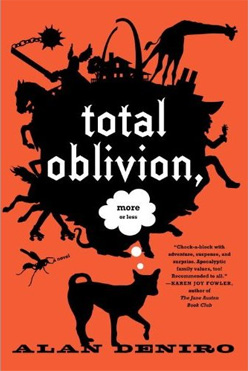Inconstancy
Well, what happened? What happens. My mind is a moving target and itās wandered off to something else. Which means that my chess fiction blog is DOA after 3 entries. I know, that short. It usually drags on for a little while more, but I decided to put it out of its misery. If Iām not interested in it, Iām not-and I donāt know what process goes on that has me move from writing project to writing project. So why apologize for it? Itās been instructive, in a way, trying to be honest with myself about this. Iām distrustful of persistence-I mean, in that masochistic way, that ājust put the blinders on and forge ahead at all costsā sort of way. I honestly think that some writers are persistent for the wrong reasons. Of course, little nudges and tricks to play on oneself, say, for a day, week, or even a month are well and good. Weāre fickle and lazy creatures at heart, and if that fire does burn-I mean, that complete immersion into a text-then a stoke here and there is certainly good.
And I donāt know, maybe Iām just missing the boat and the fact that I lose interest in things easily is really anomalous. The interest, often, picks back up at some point. They are like planetary orbits. At some point the different fields (fantasy, poetry, SF, interactive fiction, whatever) come back again.
But ironclad constancy at all costs, I think, can become corrosive when it gets tied into ambition at all costs. There is this fascinating quote I found in the archives of the Buffalo poetics list from Tom Mandel:
Neglect, lack of official endorsement; surely these are relative, surely too they are a just reward for the restless and radical desire to write. To imagine that there is a locus of power relevant to writing that exists outside the authority of that desire, which is self-permitted and demanded, is a foolish illusion. Knock long enough at the door of the one place which you imagine it matters to be publishedā¦and no doubt you will be let in and learn that they place and object associated with the idea and work are strictly irrelevant. Must it not be the case that the energy invested in imagining the opposite cd [sic] be better invested in re-imagining oneās work? Isnāt there, for every one of us, someone who imagines that we have more power than they?
Ambition as opposed to desire-summoning extraneous forces to bolster oneself as the writer as persona.
Does this privateering create a system that cultivates winners-and therefore ālosersā? If so, it is indeed kind of strange, considering that in SF/F (and to a lesser extent, poetry), letās face it, a lot-not all, but a lot-of the writers and readers and fans at one point or many point in their lives have felt the stings of loserdom, esp. in adolescence. So SF/F becomes a way to ārebrandā oneself. SF/F a generous enough (a strength!) and porous enough field that people with marginal talent can bullhorn their way in. The ambition itself creates a speculative game of king of the hill, a space that can only be combative-even though it may be great for work habits. And when this ambition isnāt linked with kindness, compassion, and decencyā¦itās nasty. However illusory that power is, if people believe in it, then it only feeds into the interior drama of this ambition.
So much of this is the ghost of the dead pulp tradition. Right, itās dead. It really is. On a purely professional level, he writers who follow this model-the neopro privateering at all costs-are to the 20s-40s pulp writers as contemporary masonic lodges are to the original Knights Templar. Of course, the same could be said for the droves of ass-hat memoirists-in-verse who descend on Breadloaf every late summer to get drunk and schmooze, schmooze deep into the night. And I remember how much I wanted that ten years ago! To get one of those stupid fucking waiter scholarships. (āWaiterāā¦both waiting on the tables of real writers and waiting for oneās time as a poet-to show everyone just how genius you are!). And Iām sure none of this is new-if we were all transported back to, say, 2nd century Persia, Iām sure Iād be bitching about how x writer was getting more influence at the court than y writer, or whatever.
This is really getting out of hand on my part; itās one am and Iām rapidly losing coherency. Iām not going down this road just for the sake of it, but to really figure it out-because I really, really think it has a lot to do with the way we not only think about SF/F (or whatever mode) but also how the very work is produced-the worlds written about, or not written about. And which books are bought and not bought (by editors, I mean-the public is a whole other ballgame). It matters how we look at each other. I want to think, every day, that my writing helps me become a more decent person. The core of personhood is at the center of what I write. What I write may change, and sometimes my interest in stupid byways might puzzle me, but that keenness to write in the first place, despite mutations and inconstancies of subject matter and form, that in itself gives me hope, and always has.
Mandel also said: āYour work is a lifelong arc (well, a much more complex shape than that); its weaknesses, lapses, gaps may contribute to strength.ā
Hereās to weakness.





Here, here. Good stuff, man!